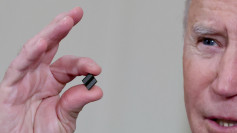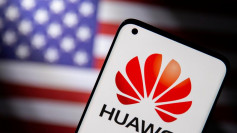The US Department of Justice, along with 16 state and district attorneys general, has filed a groundbreaking antitrust lawsuit against Apple, accusing the tech giant of operating an illegal monopoly in the smartphone market. The lawsuit, filed in the US District Court for the District of New Jersey, seeks to upend many of the ways Apple locks down its phone and allegedly harms competition and innovation.
The DOJ argues that Apple has used its dominant position in the market to extract higher prices from consumers and developers while making users more reliant on its phones. The government alleges that Apple "selectively" imposes contractual restrictions on developers and withholds critical ways of accessing the phone to prevent competition from arising.
"Apple exercises its monopoly power to extract more money from consumers, developers, content creators, artists, publishers, small businesses, and merchants, among others," the DOJ stated in the complaint.
The lawsuit highlights several ways in which Apple has allegedly maintained its monopoly illegally, including:
- Blocking Innovative Super Apps. Apple has disrupted the growth of apps with broad functionality that would make it easier for consumers to switch between competing smartphone platforms.
- Suppressing Mobile Cloud Streaming Services. Apple has blocked the development of cloud-streaming apps and services that would allow consumers to enjoy high-quality video games and other cloud-based applications without having to pay for expensive smartphone hardware.
- Excluding Cross-Platform Messaging Apps. Apple has made the quality of cross-platform messaging worse, less innovative, and less secure for users so that its customers have to keep buying iPhones.
- Diminishing the Functionality of Non-Apple Smartwatches. Apple has limited the functionality of third-party smartwatches so that users who purchase the Apple Watch face substantial out-of-pocket costs if they do not keep buying iPhones.
- Limiting Third Party Digital Wallets. Apple has prevented third-party apps from offering tap-to-pay functionality, inhibiting the creation of cross-platform third-party digital wallets.
"For years, Apple responded to competitive threats by imposing a series of 'Whac-A-Mole' contractual rules and restrictions that have allowed Apple to extract higher prices from consumers, impose higher fees on developers and creators, and to throttle competitive alternatives from rival technologies," said DOJ antitrust division chief Jonathan Kanter.
Apple spokesperson Fred Sainz defended the company, stating that the lawsuit "threatens who we are and the principles that set Apple products apart in fiercely competitive markets." He added that if successful, the lawsuit would "hinder our ability to create the kind of technology people expect from Apple-where hardware, software, and services intersect."
The case against Apple is the latest in a series of antitrust actions taken by the DOJ against tech giants, following two separate suits against Google. The lawsuit comes after years of complaints from app developers about Apple's closed and opaque marketplace, particularly regarding the company's 15 to 30 percent cut of paid subscription services offered on its platform.
While Europe has moved ahead of the US in efforts to rein in tech, with new rules under the Digital Markets Act and a recent €1.84 billion fine against Apple, the DOJ's lawsuit represents a significant step in the US government's efforts to hold Big Tech accountable under antitrust law.
Critics have long argued that Apple's restrictive practices, such as limiting the quality of multimedia texts to Android phones and restricting access to certain hardware features for third-party companies, have harmed competition and innovation. The lawsuit also challenges Apple's 30% commission on most sales through its app store, a frequent complaint from companies trying to sell subscriptions.
Apple has faced legal challenges and criticism for years over its alleged anticompetitive practices, including a highly public court battle against Epic Games, the maker of the video game "Fortnite." While federal courts have ruled that Apple is not an illegal monopolist in distributing iOS apps, the company has been penalized for violating a California competition law and has altered some of its app store practices in response to a court order.
The DOJ's lawsuit against Apple is expected to be one of the most closely watched cases brought by Jonathan Kanter, Biden's top DOJ antitrust official, who is viewed as part of a fresh generation of regulators committed to holding Big Tech accountable for alleged antitrust violations.






